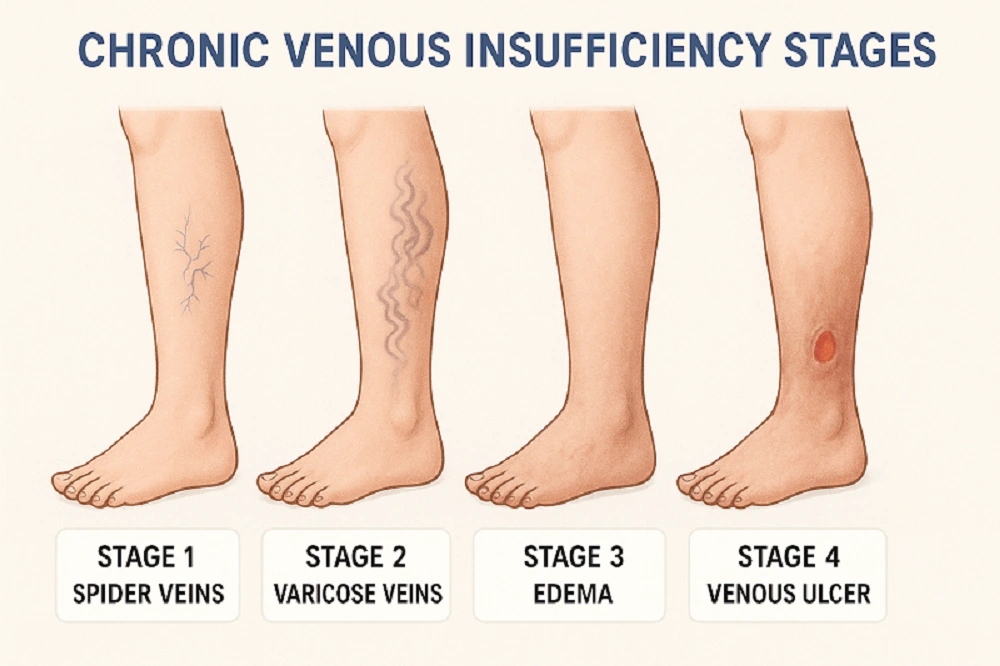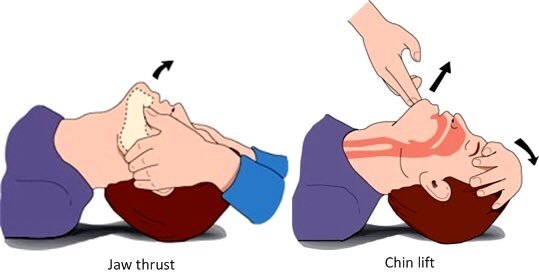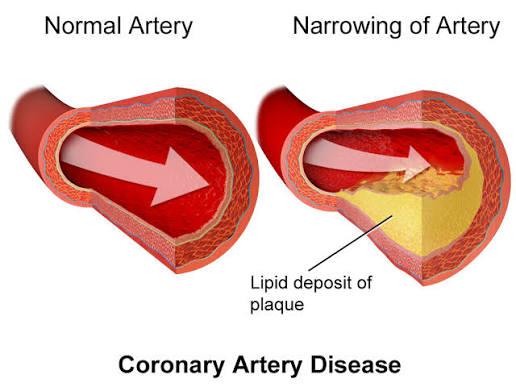
Ethical Importance of Good Communication in the Medical Profession
Effective communication is a cornerstone of ethical practice within the medical profession and among other professions. It encompasses not only the exchange of information but also the manner in which that information is conveyed, understood, and acted upon. The ethical importance of good communication can be examined through several key dimensions:
1. Patient Autonomy and Informed Consent
One of the fundamental ethical principles in healthcare is respect for patient autonomy. Patients have the right to make informed decisions about their own care, which requires clear and comprehensive communication from healthcare providers. This includes providing patients with all relevant information regarding their diagnosis, treatment options, potential risks, and benefits in a way that they can understand. When communication is poor or unclear, patients may not fully grasp their choices, leading to decisions that do not truly reflect their values or preferences.
Informed consent is not merely a legal requirement; it is an ethical obligation that hinges on effective communication. Healthcare professionals must ensure that patients are adequately informed before undergoing any procedure or treatment. Failure to do so can result in ethical violations and undermine trust between patients and providers.
2. Trust and Therapeutic Relationships
Good communication fosters trust between healthcare providers and patients. Trust is essential for establishing therapeutic relationships where patients feel safe to share sensitive information about their health concerns. When patients perceive that their healthcare providers communicate openly, honestly, and empathetically, they are more likely to engage actively in their care.
Conversely, poor communication can lead to misunderstandings, frustration, and a breakdown of trust. This can discourage patients from seeking necessary care or adhering to treatment plans, ultimately compromising their health outcomes.
3. Interprofessional Collaboration
In addition to patient-provider communication, effective communication among healthcare professionals is crucial for ethical practice. The complexity of modern healthcare often requires collaboration among various disciplines—physicians, nurses, pharmacists, social workers, and others must work together seamlessly to provide optimal care.
Poor interprofessional communication can lead to fragmented care delivery, medication errors, and adverse patient outcomes. Ethical practice demands that all team members communicate clearly about patient needs, treatment plans, and responsibilities to ensure coordinated efforts toward achieving the best possible outcomes for patients.
4. Accountability and Transparency
Good communication promotes accountability within the medical profession by ensuring that all parties involved are aware of their roles and responsibilities regarding patient care. Transparent communication allows for open discussions about errors or complications when they occur without fear of retribution.
This transparency is vital for fostering a culture of safety where healthcare professionals learn from mistakes rather than hiding them. Ethical practice involves acknowledging errors openly so that systems can be improved for future patient safety.
5. Cultural Competence
Effective communication also encompasses cultural competence—the ability to understand and respect diverse backgrounds and perspectives among patients and colleagues alike. Healthcare providers must be adept at communicating with individuals from various cultural backgrounds while being sensitive to language barriers or differing health beliefs.
Ethically sound practice requires that all patients receive equitable care regardless of cultural differences. Poor communication stemming from cultural misunderstandings can lead to disparities in health outcomes—a significant ethical concern in contemporary healthcare settings.
In summary, good communication within the medical profession—and amongst other professions—is ethically important as it underpins patient autonomy through informed consent; builds trust in therapeutic relationships; facilitates interprofessional collaboration; enhances accountability; promotes transparency; and ensures cultural competence in delivering equitable care.
International Codes of Conduct for Medical Practitioners
Internationally, medical practitioners are guided by several key codes of conduct that establish ethical standards and principles for the practice of medicine. The most prominent among these is the World Medical Association (WMA) International Code of Medical Ethics, which was first adopted in 1949 and has undergone multiple revisions, with the latest being in 2022. This code emphasizes the following principles:
- Promotion of Health and Well-being: Physicians must prioritize the health and well-being of individual patients while also considering the health of populations and society as a whole.
- Non-Discrimination: Care must be provided without bias based on age, gender, ethnicity, or other factors.
- Resource Stewardship: Physicians should use healthcare resources wisely to benefit patients optimally.
- Integrity and Accountability: Practitioners must maintain honesty, integrity, and accountability in their professional conduct.
- Conflict of Interest Management: Physicians should avoid conflicts of interest and declare them when they arise.
- Collaboration: There should be collaboration with other healthcare professionals while respecting patient confidentiality.
- Emergency Assistance: Physicians are encouraged to provide assistance in emergencies while considering their own safety.
- Continuous Learning: Ongoing education is essential for maintaining professional competence.
Other international codes include the Declaration of Geneva, which serves as a modern version of the Hippocratic Oath, emphasizing respect for human life and dignity; the Nuremberg Code, which focuses on research ethics; and the Declaration of Helsinki, which outlines ethical principles for medical research involving human subjects.
Local Codes of Conduct for Medical Practitioners
Locally, many countries have established their own codes of conduct that align with international standards but also reflect specific cultural, legal, and healthcare contexts. For example:
- American Medical Association (AMA) Code of Medical Ethics: In the United States, this code provides comprehensive guidelines addressing various ethical issues faced by physicians today. It covers topics such as patient autonomy, informed consent, end-of-life care, and professional relationships.
- National Health Service (NHS) Guidelines in the UK: The NHS has its own set of ethical guidelines that emphasize patient-centered care, confidentiality, and equitable access to healthcare services.
- Australian Medical Association (AMA) Code of Ethics: This code outlines ethical responsibilities specific to Australian practitioners, including respect for Aboriginal and Torres Strait Islander peoples’ rights to health care.
These local codes often incorporate elements from international codes while addressing unique national challenges in healthcare delivery.
In summary, both international and local codes serve to guide medical practitioners in providing ethical care that respects patient rights and promotes public health while ensuring accountability within the profession.
Nigeria Codes of Conduct for Medical Practitioners
The Codes of Conduct for Medical Practitioners in Nigeria are established to ensure that medical professionals adhere to ethical standards and provide quality care to patients. These codes serve multiple purposes, including guiding the behavior of practitioners, protecting patient rights, and maintaining public trust in the healthcare system.
1. Professional Accountability and Standards
The primary purpose of the Code is to inform medical practitioners about the standards of professional conduct required in their practice. This includes being accountable for their actions and ensuring that they provide care that meets established ethical guidelines. Practitioners must be aware of their responsibilities towards patients, colleagues, and society at large.
2. Patient-Centered Care
The Codes emphasize the importance of placing the patient at the center of all healthcare activities. This means providing care without prejudice based on age, religion, ethnicity, race, nationality, gender, political inclination, health status, or socioeconomic status. Upholding human rights as outlined in the constitution is also a critical aspect.
3. Informed Consent
Medical practitioners must ensure that patients who are legally competent (aged 18 years and above) give informed consent before any medical intervention. For minors or individuals unable to provide consent due to mental incapacity, consent must be obtained from a parent or legal guardian.
4. Confidentiality
Maintaining patient confidentiality is paramount. Medical practitioners are required to keep patient information private unless sharing it is necessary for treatment or mandated by law. This principle protects both the patient’s privacy and fosters trust in the healthcare provider-patient relationship.
5. Avoiding Malpractice
Practitioners must avoid negligence and malpractice while providing care. This includes acting professionally at all times and refraining from accepting bribes or gifts that could influence their clinical judgment or lead to preferential treatment.
6. Respecting Autonomy
Patients have the right to make informed decisions regarding their healthcare interventions. Practitioners should respect patients’ autonomy even if they refuse treatment that may result in harm or death unless a court order dictates otherwise.
7. Continuous Education and Professional Development
Medical practitioners are encouraged to engage in continuous education through workshops, seminars, and courses recognized by relevant authorities such as the Medical and Dental Council of Nigeria (MDCN). This ensures they remain updated on best practices and evolving ethical standards within medicine.
8. Ethical Dilemmas
Practitioners often face ethical dilemmas in their practice related to issues like discharge against medical advice or cultural/religious considerations affecting patient care. The Codes guide them on how to navigate these complex situations while prioritizing patient welfare.
In summary, adherence to these Codes of Conduct is essential for maintaining professionalism within the medical field in Nigeria while ensuring high-quality care for patients.
Overview of Statutory Requirements for Medical Practitioners
Statutory requirements for medical practitioners are legal obligations established by state and federal laws that govern the practice of medicine. These requirements ensure that healthcare providers meet certain standards of education, training, and ethical conduct to protect patient safety and public health. Below are some key statutory requirements illustrated with examples:
1. Licensing Requirements
Medical practitioners must obtain a valid license to practice medicine in their respective states. This typically involves completing a medical degree from an accredited institution, passing national board examinations, and fulfilling any additional state-specific requirements.
Example: In the United States, the United States Medical Licensing Examination (USMLE) is a three-step examination for medical licensure. A physician must pass all three steps to be eligible for licensure in most states.
2. Continuing Education
Many states require licensed medical practitioners to complete continuing education (CE) courses periodically to maintain their licenses. This ensures that healthcare professionals stay updated on the latest medical knowledge, practices, and technologies.
Example: In California, physicians are required to complete 50 hours of continuing medical education every two years as part of their license renewal process.
3. Scope of Practice Regulations
Each state defines the scope of practice for different types of healthcare professionals, which outlines what services they are legally permitted to provide based on their training and qualifications.
Example: Nurse practitioners (NPs) in some states may have full practice authority, allowing them to diagnose conditions and initiate treatment plans independently. However, in other states, NPs may need physician supervision or collaboration for certain aspects of care.
4. Reporting Obligations
Medical practitioners often have statutory obligations to report specific incidents or conditions to appropriate authorities. This includes reporting cases of abuse, communicable diseases, or adverse events related to patient care.
Example: In many jurisdictions, physicians are mandated reporters for suspected child abuse or neglect; they must report any suspicions they have regarding such cases to child protective services.
5. Patient Privacy Regulations
Healthcare providers must comply with laws governing patient privacy and confidentiality, such as the Health Insurance Portability and Accountability Act (HIPAA). These regulations dictate how patient information should be handled and protected.
Example: Under HIPAA regulations, healthcare providers must implement safeguards to protect patients’ health information from unauthorized access or disclosure.
6. Professional Conduct Standards
Medical practitioners are required to adhere to ethical standards set forth by professional organizations and regulatory bodies. Violations can result in disciplinary actions including suspension or revocation of licensure.
Example: The American Medical Association (AMA) has established a Code of Medical Ethics that outlines principles such as honesty in communication with patients and maintaining professional boundaries.
In summary, statutory requirements for medical practitioners encompass licensing mandates, continuing education obligations, defined scopes of practice, reporting duties, patient privacy protections, and adherence to professional conduct standards—all aimed at ensuring high-quality care and safeguarding public health.
Statutory Requirements for Medical Practitioners in Nigeria
In Nigeria, the practice of medicine is governed by a set of statutory requirements established under the Medical and Dental Practitioners Act Cap 221 (now Cap M8) Laws of Federation of Nigeria 1990. This legislation outlines the framework for medical practice, including the establishment of the Medical and Dental Council of Nigeria (MDCN), which serves as the regulatory body for medical practitioners in the country. Below are some key statutory requirements for medical practitioners in Nigeria:
- Registration with MDCN: All medical practitioners must be registered with the Medical and Dental Council of Nigeria to legally practice medicine. This registration process ensures that only qualified individuals are allowed to provide medical services.
- Assessment Examination for Foreign Graduates: Foreign medical graduates seeking to practice in Nigeria must sit for and pass the MDCN Assessment Examination. This examination assesses their knowledge and skills to ensure they meet Nigerian standards.
- Proof of Qualification: Foreign-trained medical practitioners must provide evidence from health regulatory bodies in their countries of training that they are qualified to be registered and could have practiced there if desired. This requirement helps maintain a standard of care within the Nigerian healthcare system.
- Continuing Professional Development: Registered medical practitioners are required to engage in continuing professional development (CPD) activities as mandated by MDCN regulations. This ensures that doctors remain updated on current practices, technologies, and treatments in medicine.
- Adherence to Ethical Standards: Medical practitioners must adhere to ethical standards set forth by the MDCN, which includes maintaining patient confidentiality, obtaining informed consent, and practicing with integrity.
- Licensing Requirements: Practitioners must obtain a license from MDCN before commencing practice. The licensing process involves submitting proof of qualifications, passing necessary examinations, and fulfilling any additional requirements set by the council.
- Compliance with Health Regulations: Medical practitioners are also required to comply with various health regulations established by both federal and state governments regarding public health policies, disease control measures, and healthcare delivery systems.







